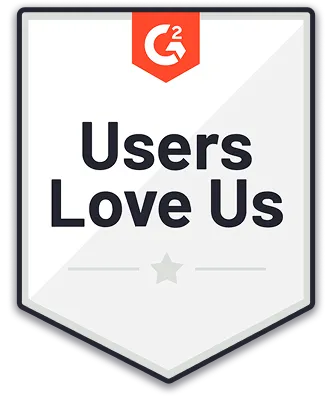
Not all blockchain integrations are created equal. Some companies treat them like the digital equivalent of using a butter knife as a screwdriver - it might work, sort of, but it's not pretty, and you'll probably hurt yourself in the process.
Now, you might be thinking, "But wait, isn't blockchain supposed to be all transparent and easy to track?"
Yes the blockchain is transparent, but in the same way that the human genome is publicly available. Sure, it's all there, but good luck making sense of it without a Ph.D. in genomics and a supercomputer.
Similarly, you’ll need enterprise-grade, audit-ready blockchain integrations to connect blockchain data with modern compliance and financial reporting systems.
Now here's the inconvenient truth: blockchain integrations can be a hot mess. They're plagued by third-party dependencies, incomplete data, broken audit trails, and scalability issues, just to name a few issues.
At Bitwave, we've gone through the fire, wrestled with the chaos, and come out the other side with battle scars and hard-won wisdom. That's why we're pulling back the curtain on 8 inconvenient truths about blockchain integrations. Knowing these could mean the difference between riding the blockchain wave and wiping out spectacularly.
1. Third-party dependence compromises data integrity and timeliness
Many blockchain integrations rely on third-party data providers, introducing potential points of failure, data manipulation, and significant delays that can miss critical transactions.
Why it's a problem: Imagine you're trying to make a million-dollar decision based on blockchain data, but your data provider is moving slower than a sloth. Not ideal, right? Late or manipulated data can lead to missed opportunities, compliance nightmares, and the kind of financial mistakes that make any CFO wake up in a cold sweat.
How Bitwave addresses it: Bitwave runs its own nodes wherever possible and uses several trusted data sources as a backup. This cuts out the middle-manand allows us to have a high degree of reliability.
This allows us to gain access to the raw data on the chain, which can avoid the possibility of missing or manipulating data from a third party. Being closer to the metal means real-time access so we can more quickly provide information on the latest transactions.
We serve up blockchain data so fresh and secure, it makes other providers look like they're using carrier pigeons and leaky buckets.
2. Incomplete data and broken audit trails cripple compliance efforts
If you’re not running your own nodes, blockchain APIs can be plagued by incomplete data and improper auditing control. This makes it difficult to trace data lineage and ensure regulatory compliance.
Why it's a problem: Try to explain to auditors why your blockchain data has more holes than Swiss cheese and see how they react. We’re talking regulatory fines, reputational damage, and the kind of stress that makes you consider a career change.
How Bitwave addresses it: Bitwave's integrations are like a meticulous librarian - every piece of data is accounted for, cataloged, and traceable.
By leveraging a blend of our own nodes and trustworthy data sources, we can also access the full chain history without data constraints.
Our comprehensive data capture and robust audit trails mean you can face your next audit with confidence.
3. Shape-shifting blockchain ecosystem leaves others struggling to keep up
Engineering a strong data integration takes time and resources, so others may shy away from connecting with the latest L2 or exchange. But that’s not good enough for enterprise finance teams.
Why it's a problem: The blockchain world moves faster than gossip in a small town. New protocols and token standards pop up more frequently than new Netflix shows. If your integration can't keep up, you're basically trying to track crypto transactions with a telegraph machine (AKA. Manually on spreadsheets.)
How Bitwave addresses it: We're like that one friend who always knows about the coolest new thing before everyone else, except instead of obscure indie bands, we're on top of the latest blockchain protocols before you need them. Our dev team prioritizes the blockchain integrations you need.
4. Cross-chain blindness limits operational visibility
You need to have confidence in your data. All of it. And, unless you have deeply integrated visibility across every chain you support, blind spots are inevitable.
Why it's a problem: Operating across multiple blockchains without proper visibility is like trying to conduct an orchestra while wearing a blindfold and earplugs. You might wave your arms around a lot, but the result is more likely to be a cacophony than a symphony.
How Bitwave addresses it: At Bitwave, we recognize the critical importance of cross-chain visibility. Our approach to blockchain integrations is designed to give you the comprehensive, cross-chain view you need.
5. Scalability issues and silent failures threaten data reliability
As digital asset transaction volumes increase, so does the complexity of the data. Other integrations struggle with scalability and lack robust error handling, potentially leading to silent failures.
Why it's a problem: Silent failures in blockchain integrations are like ninjas - deadly and hard to detect. As your transaction volume grows, these silent killers can wreak havoc on your data.
How Bitwave addresses it: Our integrations are built to scale from day one. This achievement is the result of our proactive monitoring of source changes, an alert system that notifies us when thresholds are breached, and rigorous user acceptance testing.
We also transparently share insights on our status page for all users to access, even when third-party sources are experiencing issues.
6. Limited historical data and poor normalization hamper analysis
Most blockchain data providers offer limited historical data and lack proper data normalization, making it challenging to perform long-term, multi-chain analysis or audits.
Why it's a problem: Trying to perform meaningful analysis on limited, non-normalized blockchain data is like trying to solve a 1,000-piece jigsaw puzzle with half the pieces missing and the rest from different puzzles. You might create something, but it probably won't look like the picture on the box.
How Bitwave addresses it: We're basically time lords when it comes to blockchain data. Our historical data goes back to the genesis block. And our data normalization would make Marie Kondo proud - everything in its right place, sparking joy for analysts everywhere.
7. Network upgrades and forks can cause significant data discrepancies
Traditional integrations often fail to account for blockchain-specific events like hard forks or network upgrades, potentially leading to critical data inconsistencies.
Why it's a problem: Network upgrades and forks are like surprise parties for your blockchain integration - exciting for some, but mostly just disruptive and potentially traumatic. If your integration isn't prepared, you could end up with data discrepancies.
How Bitwave addresses it: We treat network upgrades and forks like a game of chess - we're always thinking several moves ahead. Our team anticipates and prepares for these events, ensuring your data remains consistent.
8. Manual sorting and lack of context burden teams and limit actionability
Many blockchain integrations lack sophisticated categorization capabilities and contextual metadata, forcing businesses to manually sort through thousands of transactions and struggle to derive actionable insights.
Why it's a problem: Manually sorting through blockchain transactions is about as fun as counting grains of sand on a beach. It's time-consuming and mind-numbing, and there's always a chance you'll miss something important because you were distracted by a seagull (or in this case, a particularly confusing smart contract interaction).
How Bitwave addresses it: Our advanced categorization and contextual metadata are like having a really smart, tireless senior analyst who never sleeps and never complains. We automatically sort and contextualize your transactions at scale, turning a mountain of data into a neatly organized filing cabinet of actionable insights – all made possible with our robust rule capability.
From blockchain to balance sheet, Bitwave’s got your back
If manually integrating blockchain data into ERP software were a video game, it'd be the final boss level - on nightmare mode. But with Bitwave? We're the cheat code you've been waiting for.
Built for enterprises and institutions, Bitwave delivers the reliability, security, and control demanded by today’s leading finance teams. Bitwave automates on-chain accounting workflows, streamlines regulatory compliance, and simplifies tax reporting complexity with a comprehensive, audit-ready platform.
Don't let your blockchain integration be an inconvenient truth. Let Bitwave turn it into a convenient reality.
Check out our integrations page now, and join the ranks of businesses who are actually enjoying their blockchain data. Yes, you read that right - enjoying. Blockchain. Data. Welcome to the future, folks.


Disclaimer: The information provided in this blog post is for general informational purposes only and should not be construed as tax, accounting, or financial advice. The content is not intended to address the specific needs of any individual or organization, and readers are encouraged to consult with a qualified tax, accounting, or financial professional before making any decisions based on the information provided. The author and the publisher of this blog post disclaim any liability, loss, or risk incurred as a consequence, directly or indirectly, of the use or application of any of the contents herein.






